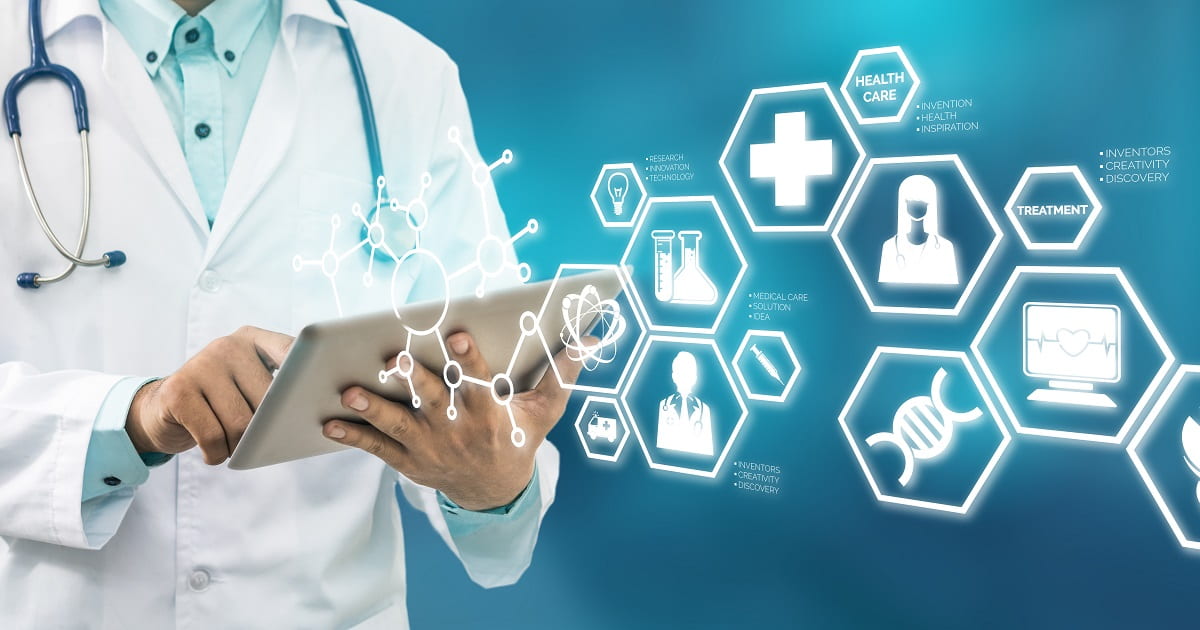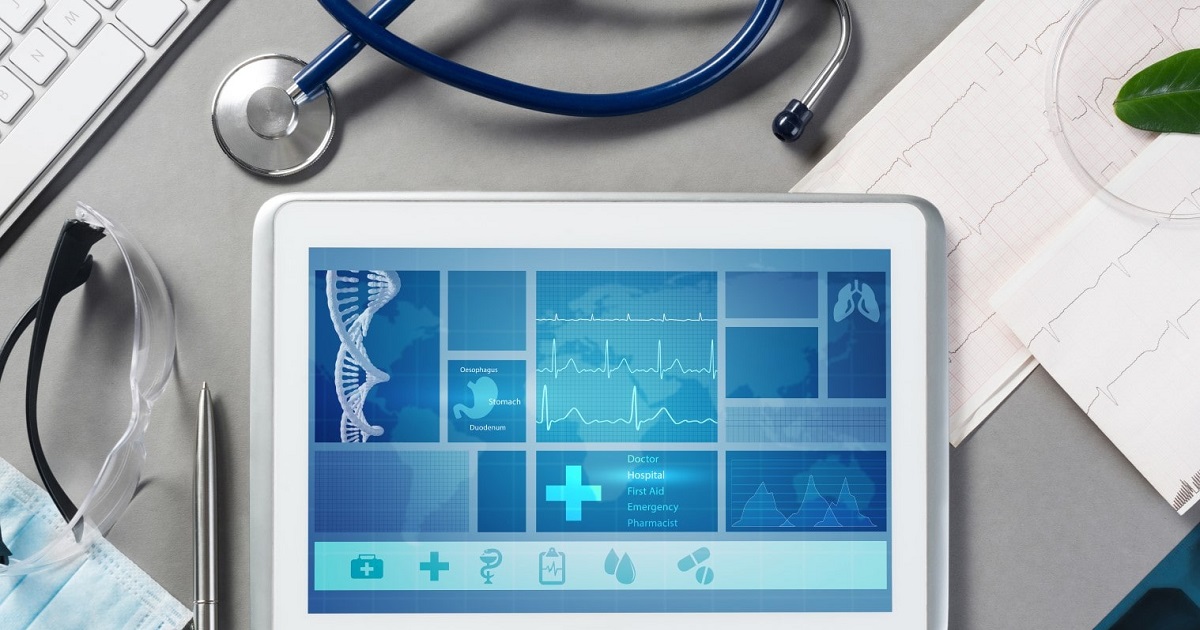
Health Technology
Article | September 12, 2023
Introduction
Over the past couple of years, there has been a substantial rise in the burden of chronic conditions and treatment costs, along with the growing elderly population, which is transforming the healthcare sector at a rapid pace. As per a study, healthcare spending across the globe is anticipated to reach an unprecedented value to total US$ 18.3 trillion by 2030. In response to these trends, volume-based payment models are being replaced by outcome- or value-based models.
Predictive analytics helps health organizations to get in line with these new models and improve patient care and outcomes. From predicting critical conditions such as heart failure and septic shock to preventing readmissions, the recent advancements in big data analytics are boosting the adoption of new predictive analytics solutions that aid clinicians improve outcomes and cut costs.
Predictive analytics in healthcare is most helpful with clinical care, administrative tasks, and managing operations. More importantly, the technology is already making a difference in a wide range of healthcare settings, from small private doctor's offices and large academic hospitals to healthcare insurance companies.
How is Growing Healthcare Data Favoring the Penetration of Predictive Analytics?
The growing inclination toward digitalization in the healthcare industry has led to the creation of huge new data sets. These include radiology images, electronic medical record (EMR) systems, lab results, and health claims data. The amount of data is expected to reach new avenues with increasing genomics and cytogenesis research data in the near future.
New data is being generated and collected by the novel medical devices at the edge, such as monitors and patient wearables. In addition, outside the healthcare setting, patients are generating quasi-health data through the use of health monitoring applications, fitness trackers, and personal wearable devices.
By using data from these sources, health care providers can find new ways to use predictive modeling for health risks, predictive analytics for medical diagnosis, and prescriptive analytics for personalized medicine.
Predictive analytics has become a crucial component of any strategy for health analytics. Today, it's an essential tool for measuring, combining, and making sense of biometric, psychosocial, and behavioral data that wasn't available or was very hard to get a hold of until recently. Here are some of the applications of predictive analytics for healthcare
Identifying Patients at Risk
Clinical Predictions
Disease Progression and Comorbidities
Predicting Length of Stay
Speeding Treatment of Critical Conditions
Reducing Readmissions
The Future Story
With the growing prominence of innovative technologies across the healthcare industry, a number of health IT providers are focusing on developing their own analytics software and engines to assist healthcare spaces deliver optimal patient care.
For instance, in 2020, Eversana, a U.S.-based provider of innovative solutions to the life sciences industry, announced the introduction of its ACTICS predictive analytics solution, which enables clinical spaces to combine multiple data sources into a single comprehensive system.
Also, some U.S. companies are partnering with healthcare institutions to develop proprietary algorithms designed to enhance organizational performance, improve clinical care, and increase operational efficiency. Such developments are projected to increase the popularity of predictive analytics solutions in the healthcare sector in the coming years.
Read More

Healthtech Security
Article | November 29, 2023
COVID-19 has been a catalyst for change, with the diagnostics industry taking centre stage and rising to the challenge of a global pandemic. One of the silver linings of this mammoth task has been the unprecedented time and focus dedicated to finding new technologies and solutions within the sector.
The lessons learned from the pandemic now need to be taken forward to improve breast and cervical cancer detection, prevention and treatment across the UK over the coming years.
In the more immediate term, the diagnostics industry, alongside public health leaders, faces a daunting backlog as screening programmes for breast and cervical cancer were put on pause for months. These two life-saving tests have been some of the most overlooked during the pandemic and getting back on track with screening is critical as we start to turn the corner. We believe innovation in diagnostics, particularly artificial intelligence guided imaging, is a key tool to tackle delays in breast and cervical cancer diagnosis.
The scale of the backlog in missed appointments is vast. In the UK, an estimated 600,000 cervical screening appointments were missed in April and May 2020. And an estimated 986,000 women missed their mammograms, of which an estimated 10,700 could be living with undiagnosed breast cancer. It is clear that hundreds of thousands of women have been affected as COVID-19 resulted in the reprioritisation of healthcare systems and resource allocation.
Both cervical and breast cancer screening are well suited for digital technologies and the application of AI, given both require highly trained medical professionals to identify rare, subtle changes visually –a process that can be tedious, time-consuming and error prone. Artificial intelligence and computer vision are technologies which could help to significantly improve this.
What does AI mean in this context?
Before examining the three specific areas where digitisation and AI can help, it is important to define what we mean by AI. It is the application of AI to medical imaging to help accelerate detection and diagnosis. Digitisation is the vital first step in implementing an AI-driven solution – high quality images demand advanced cloud storage solutions and high resolution. The better the quality of the input, the more effectively trained an AI system will be.
The first area where AI-guided imaging can play a role is workflow prioritisation. AI, along with increased screening units and mammographers, has the potential to increase breast cancer screening capacity, by removing the need for review by two radiologists. When used as part of a screening programme, AI could effectively and efficiently highlight the areas that are of particular interest for the reader, in the case of breast screening, or cytotechnologist when considering cervical screening.
Based on a comparison with the average time taken to read a breast screening image, with AI 13% less time is needed to read mammogram images, improving the efficiency with which images are reviewed. This time saving could mean that radiologists could read more cases a day and potentially clear the backlog more quickly.
For digital cytology for cervical cancer screening, the system is able to evaluate tens of thousands of cells from a single patient in a matter of seconds and present the most relevant diagnostic material to a trained medical professional for the final diagnosis. The job of a cytotechnologist is to build a case based on the cells they see. Utilising these tools, we are finding that cytotechnologists and pathologists are significantly increasing their efficiency without sacrificing accuracy to help alleviate the backlog of cervical screening we are seeing in many countries.
Prioritising the most vulnerable patients
Another key opportunity is applying AI to risk stratification, as it could help to identify women who are particularly at risk and push them further up the queue for regular screening. Conversely, it would also allow the screening interval for those women at lower risk to be extended, creating a more efficient and targeted breast screening programme.
For example, women with dense breast tissue have a greater risk factor than having two immediate family members who have suffered from breast cancer. What’s more, dense breasts make it more difficult to identify cancerous cells in standard mammograms. This means that in some cases cancers will be missed, and in others, women will be unnecessarily recalled for further investigation.
A simple way to ensure that those most at risk of developing breast cancer are prioritised for screening and seen more regularly would be to analyse all women on the waiting list with AI-guided breast density software. This would allow clinicians to retrospectively identify those women most at risk and move them to the top of the waiting list for mammograms.
In the short term, to help tackle the screening backlog, prior mammograms of women on the waiting list could be analysed using the breast density software, so that women at highest risk could be seen first.
Finding new workforce models
Being able to pool resources will allow resource to be matched to demand beyond borders. Globally, more than half a million women are diagnosed with cervical cancer each year and the majority of these occur where there is a lack of guidance to conduct the screening programme. The digital transformation of cervical screening can connect populations that desperately need screening to resources where that expertise exists. For example, developing countries in Africa could collect samples from patients and image these locally, but rely on resources in the UK to support the interpretation of the images and diagnoses. Digital diagnostics brings the promise of a ‘taxi-hailing’ type model to cervical cancer screening – connecting groups with resources (drivers with cars) to those who are in need (passengers): this is an efficient way of connecting laboratory professionals to doctors and patients around the world.
It’s going to take many months to get cancer screening programmes up and running at normal levels again, with continued social distancing measures and additional infection control impacting turnaround times. But diagnostic innovation is on a trajectory that we cannot ignore. It will be key to getting cancer screening programmes get back on track. AI is a fundamental piece of the innovation puzzle and we are proud to be at the forefront of AI solutions for our customers and partners.
Read More

Health Technology, Digital Healthcare
Article | September 8, 2023
The pandemic-fueled technology adoption has enabled the healthcare industry to address the challenges, including cybersecurity, telehealth, invoicing and payment processing, patient experience, effective payment model, and big data. The responses to the unusual COVID-19 pandemic has sped up the adoption of new digital technologies in the industry. It has also fueled advancements in health technology. From the start of 2020, these advancements transformed the healthcare industry into a next-gen one by accelerating digitization of their internal and external operations by two to three years.
This surprising impact of technology in the healthcare industry has brought out unexpected competition between the key players in the B2B healthcare market. Whatever the field, adapting yourself to modern changes is the best strategy to thrive. Get yourself updated according to the changes or get yourself outdated is the new norm in the healthcare industry.
The following trends and advancements in technology in the healthcare industry due to the pandemic in 2020 show that healthcare providers are always searching for new ways to improve their productivity, performance, and efficiency. These were the need of the hour during the pandemic, for them to surge ahead of their competitors.
• Telemedicine
• Artificial Intelligence (AI) in healthcare
• The Internet of Medical Things (IoMT)
• Supply chain management technology
• Privacy issues
• AR/VR/MR in Healthcare
• Blockchain
• Digital marketing trends in healthcare
This article looks into the major innovations, advancements, and trends brought out by the global pandemic in 2020 in the healthcare industry.
Pandemic-fueled Advancements
One of the biggest challenges faced by the healthcare industry in the US today is its digital capacity to effectively engage consumers and make them stay healthy. This can include helping people to prevent getting infected by various diseases such as COVID-19 and effectively managing various other chronic conditions. This is where technology in the healthcare industry has a major role to play.
Due to the latest advancements in technology, the healthcare industry was already evolving but the COVID-19 pandemic accelerated this transformation dramatically. McKinsey reports that US$250 billion was spent on technology in the US healthcare industry to shift the industry into a virtual care model in the wake of the pandemic. Also, a study by FAIR Health, a non-profit group, says the increase in telehealth claims in the US is 4,000% in 2020.
Here’s a detailed look into the above-mentioned advancements, innovations or trends brought out by the pandemic in the industry.
Telemedicine
Had the world ever thought that it would be possible one day for doctors to remotely examine the health of patients via a smartphone or a computer? Telemedicine, a new trend in technology in the healthcare industry, addresses many challenges in the industry. Improved technology in the industry has made telemedicine easier, even for people, who are not computer savvy. Telehealth services are now provided through different telemedicine apps.
In the light of the pandemic, rather than in-person visits, 43.5% of primary medical visits were done using telehealth methods in April 2020 in the US. The major benefit of telemedicine is that it reduces contact between healthcare workers, patients, and other patients. This reduces the chances of the spread of infectious diseases.
Reports say that 71% of Americans considered telemedicine useful at the beginning of the pandemic. This trend is expected to continue in the coming years too. With the pandemic, telemedicine saw an immediate boom compared to previous years. This boom in telehealth is projected to break US$185.6 billion by 2026.
Artificial Intelligence (AI) in healthcare
Artificial intelligence, a new trend and advancement in technology in the healthcare industry, had a critical role in fighting the pandemic. AI played a major role in areas such as pandemic detection, vaccine development, facial recognition with masks, thermal screening, and analyzing CT scans. AI is becoming the new operating technology in the healthcare industry.
Major AI healthcare applications
Healthcare providers will benefit a lot from AI-driven tools as AI technology in the healthcare industry has become a transformational force. Machine learning algorithms and software in AI will revolutionize the use of technology in the healthcare industry and the science of healthcare in the coming years too. AI will unify machines and humans through the brain. Some of the AI technologies in the healthcare industry, which are very relevant, are machine learning, natural language processing (NLP), rule-based expert systems, physical robots, diagnostic and treatment, patient engagement and adherence, and administrative applications.
Benefits of AI in healthcare and statistics
AI addresses many challenges that present technology in the healthcare industry cannot tackle. Better data-driven decisions, increased disease diagnosis efficiency, reduced treatment time, easy integration of information, reduced costs, increased patient satisfaction, fewer errors, and easier payment options are some of the benefits AI-assisted technology in the healthcare industry can provide.
According to an analysis by Accenture, by 2026, clinical AI health applications are expected to create approximately US$150 billion for the US healthcare economy as annual savings. Also, the US AI health market is expected to reach around US$6.6 billion by 2021.
The Internet of Medical Things (IoMT)
Nowadays, medical interactions involve some sort of equipment or device; it can be a glucose monitor, blood pressure monitor, or even an MRI scanner. It may not be a surprise now that, according to a 2020 Deloitte report, the available number of medical technologies are around 50,000. The internet-connected devices, which are known as IoMT tools, are transforming the healthcare and technology in the healthcare industry.
What Is IoMT?
The connected infrastructure of software applications, medical devices, and health systems and services are the IoMT. This has emerged by combining IoT development with telehealth technologies and telemedicine.
Potential of IoMT in healthcare and statistics
Lower costs for care, fewer mistakes, and more accurate diagnosis are the potential capabilities of IoMT. IoMT paired with various smartphone applications allows patients to send information regarding their health to doctors and get treated for diseases. This type of technology-driven healthcare not only improves patient experiences but also reduces the cost. IoMT, the new trend in technology in the healthcare industry, also has a positive effect on drug management.
According to Goldman Sachs, IoMT will save US$300 billion annually in the healthcare industry. AllTheResearch expects that the global IoMT market value will reach US$254.2 billion from US$44.5 billion in 2018.
Supply chain management technology in the healthcare industry
Utilizing advanced supply chain management technology in the healthcare industry enables healthcare providers to reach the right patients with the right product at the right time. Digitalized supply chain management also makes healthcare organizations improve provider-patient connectedness, data flow and analytics, regulatory compliance, and asset tracking.
A range of challenges faced by healthcare providers prompts you to digitalize supply chain networks, using the latest technologies in the healthcare industry. Advanced supply chain management technology will help you optimize costs, reduce unnecessary variation due to error and variability, enhance patient care, engagement, and delivery, and address new value-creation priorities.
According to reports from market researchers, global healthcare supply chain management technology is expected to reach US$3.3 billion in 2025 from US$2.2 billion in 2020.
Privacy issues
Privacy is a serious concern in technology in the healthcare industry, especially because of HIPAA compliance in 2020. Although data and information of patients can be efficiently stored and retrieved through cloud computing, complying with the strict electronic Protected Health Information (ePHI) is difficult.
While electronic health records and sensor networks, and advancements in other technologies in the healthcare industry will surely improve the quality of healthcare by reducing medical errors and costs, associated security and privacy are challenges to be addressed. Journal of the American Medical Informatics Association estimated that stolen or lost PHI may cost the US healthcare industry approximately US$7 billion annually.
To solve these issues, hospitals, and other healthcare providers have to stop using outdated technology and adopt state-of-the-art technologies without violating HIPAA. Encryption technology in the healthcare industry is the best option and healthcare providers should start using it to ensure the privacy of patients.
AR, VR, and MR in Healthcare
Virtual (VR) and augmented reality (AR) are important technologies in the healthcare industry to enhance and ensure the quality of telemedicine, especially during the period of the pandemic. The pandemic has made these technologies more popular and the trend is expected to continue in the future too. Both of these technologies in the healthcare industry are used to enhance patient and provider visits and even to educate medical students.
AR and VR also have the potential to help stroke victims overcome deficiencies, assist in robotic surgeries, educate patients before surgeries, facilitate easy surgical planning, help patients with PTSD, and reduce anxiety in children during a painful procedure or blood tests. Mixed reality (MR) is the mixed use of both VR and MR in a patient’s healthcare process and is also gaining popularity.
Blockchain
Blockchain is a trend which is expected to revolutionize technology in the healthcare industry. Using blockchain or digital ledgers will enable you to securely distribute transaction records to patients with improved data security. Along with other trends such as cloud computing and IoMT, blockchain also offers portability, accessibility, and high security. One of the greatest benefits of blockchain technology in the healthcare industry is interoperability.
As blockchain provides full visibility through a digital ledger, it improves integrity and transparency. Blockchain technology in the healthcare industry is beneficial to handle clinical study information, patient wearable data, and patient records.
Scope of blockchain technology in the healthcare industry
Various statistics on blockchain technology in the healthcare industry expect a wide scope for this technology. The global blockchain technology market in the healthcare industry is projected to cross US500 million by 2022.
Digital marketing trends in healthcare
Digital marketing technology in the healthcare industry has been revolutionized as new trends were set by the pandemic in 2020. As the world shrunk to online mode during the pandemic period, the following healthcare digital marketing trends emerged.
Content marketing
The smartest way to attract new patients to your service is content marketing and educational content. 2020 is the time where the content truly emerged as king. Educational content is vital in the healthcare space because everyone always tries to learn new things. It can be a trick or tips about the latest technological advancements, general industry news, or new diagnostic options.
Mobile responsive websites
Another important digital marketing technology in the healthcare industry is making an attractive website, which also must be mobile responsive. In this modern world of technology, everyone wants to access every facility at their fingertips. So, if your website is not mobile responsive, you won’t get traffic to your website easily.
Along with these two trending digital marketing technologies in the healthcare industry, some of the other trends are:
• Video marketing
• Multichannel initiatives and customer touchpoints
• Online reputation
• Powerful presence on social media channels
• Location-based SEO
The essential trends and advancements in technology in the healthcare industry depicting the future of healthcare are machine learning, artificial intelligence, and data science along with a focus on effective healthcare digital marketing technology and strategy. The pandemic fueled B2B healthcare technology will make the industry evolve every year and go on resolving new challenges that arise.
Frequently Asked Questions
Why is technology important to the healthcare industry?
Integrating technology with healthcare industry will improve quality of life. Also, the use of digital technology in the healthcare industry will increase efficiency, quality, and patient experience.
What is new technology in healthcare?
Due to the COVID-19 pandemic, many trending technologies are used in healthcare. The new technologies in the healthcare industries are AI, blockchain, chatbots, voice search, and virtual reality.
What are the negative impacts of medical technology?
Medical technology can have some negative impacts on patients such as impersonal or minimized care, negative health effects, increased patient costs, inappropriate use, and invasion of privacy.
Read More

Health Technology
Article | July 21, 2022
Over the last couple of years, the healthcare industry has witnessed significant technological advancements transforming numerous procedures and treatments, ranging from magnetic resonance imaging scanners and radiotherapy to antibiotics and anesthetics.
In addition, the introduction of novel technologies (new pharmaceuticals and treatments, new equipment, new social media support for healthcare, etc.) has further provided air to the fire for innovation in the sector, encouraging healthcare providers to upgrade their technological infrastructure.
Medical Computers Paving the Way in Healthcare
Use of modern technology, such as medical computers, is becoming more and more crucial in healthcare institutions, including hospitals, clinics, and specialized treatment centers. These computers are used in hospitals for a variety of purposes, from better laparoscopic, minimally invasive surgical techniques used by surgeons to patient tracking and health monitoring gadgets.
Medical computers are becoming more prevalent as they help medical professionals make faster, more reliable, and more accurate decisions. Additionally, they enable the emergence of new data, integrate advanced technologies such as artificial intelligence, and enhance decision-making processes, which are particularly crucial when it comes to medical diagnostics and treatment. New computer and technology solutions in the healthcare sector are enabling a wide range of outcomes that were previously unimaginable. They assist medical practitioners in both data collection and data interpretation, enabling them to make decisions that are thoroughly informed by insight. Here are some of the applications that have experienced immense transformation in recent years
Hospital Information Systems
Medical Personnel and Staff Management
Data Analysis in Medicine
Medical Imaging
Computer-assisted Therapy
Laboratory Computing
Critical Patient Care
Computer Assisted Decision-making (CMD)
Patient Check-In and Status
Growing Adoption Encouraging Product Launches
With technologies like medical computers becoming essential for processing numerous day-to-day operations in the healthcare industry, the need for these computers is growing at a rapid pace. Hence, a number of medical equipment providers are emphasizing on offering cutting-edge solutions to modern healthcare facilities.
For instance, in 2021, American Portwell Technology, Inc., a world-leading innovator of the Industrial PC, unveiled two certification-ready all-in-one medical computers - MEDS-P2410-P200 (23.8″) and MEDS-P2210-P200 (21.5″) with features such as true-flat capacitive touchscreen and optional hot-swappable batteries.
Read More